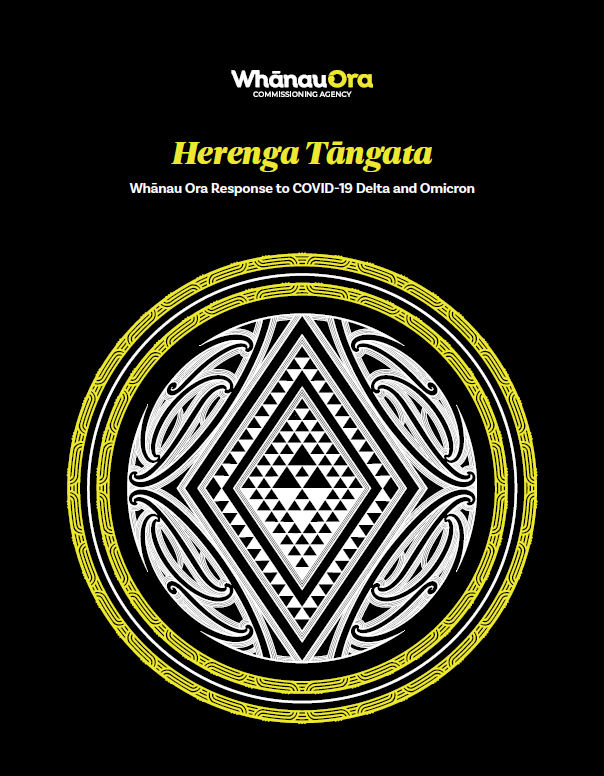Herenga Tāngata –
Whānau Ora Response to COVID-19 Delta and Omicron
This second report of four, builds upon the first Herenga Waka Whānau Ora Response to COVID-19, a study that covered the emergence of COVID-19 as a global pandemic and looking to provide some understanding of how and why WOCA responded to what was then an unknown threat to Māori communities. This reporting period (August 2021 to March 2022) coincides with the emergence of the Delta variant within Aotearoa in August 2021 followed by the more transmissible Omicron variant in December 2021. In this report, we describe how WOCA and its partners responded to the emergence of both the Delta and Omicron variants of COVID-19. We draw attention to the collective efforts involving iwi, Māori communities and Māori health networks and the key innovations and initiatives that were undertaken to support the delivery of positive outcomes for Māori. This research was commissioned by WOCA with a view towards understanding the response to the Delta and Omicron variants and to provide a snapshot of what was achieved through this period.
This current study re-emphasises the value of Māori-led, whānau-centred and culturally informed initiatives and highlights the ability of WOCA and its partners to reorient their efforts to where the need is most compelling. Accordingly, core Māori values informed the ways in which WOCA and its networks interacted during this phase of the response and has provided an example of the inherent strengths of Māori communities when caring for and protecting others. The WOCA response resulted in a number of key innovations in how services were delivered to whānau. These innovations have the potential to profoundly transform service delivery within Aotearoa’s social and health sectors.
This report charts the efforts of WOCA in protecting and supporting whānau. Findings will support policy development and system change as well as cross-sectorial partnerships between Māori providers, hapū, iwi, and Government. While the emphasis is on WOCA’s efforts to protect Māori, we also want to draw attention to the fact that WOCA’s initiatives have also reached thousands of non-Māori in need.
Wai Rangahau would like to thank WOCA for their support.

